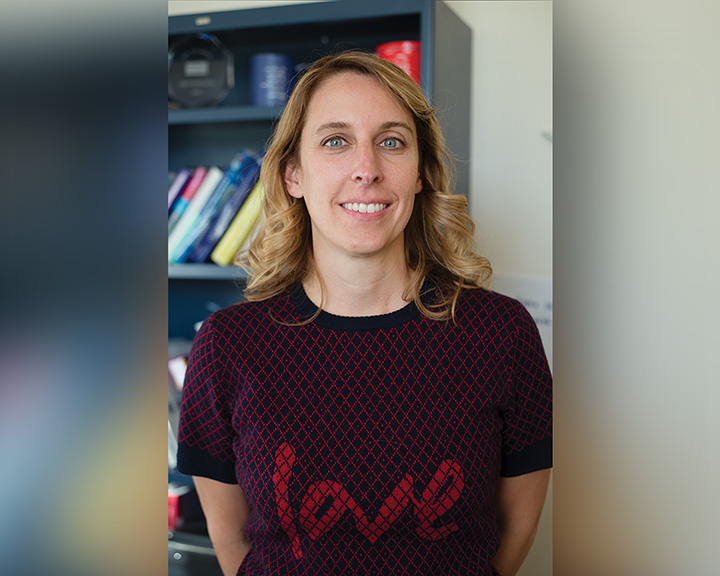A University of Maryland researcher is using a self-created communication network to help house scientists who might be stuck abroad following President Trump’s immigration ban.
Though a federal judge in Seattle issued a ruling Friday that has temporarily blocked a ban barring citizens of seven predominantly Muslim countries from traveling to the U.S. for 90 days, the future of some U.S. scientists who have been doing work abroad remains in limbo.
To address this, Jen Golbeck, a computer science and information studies professor at this university, decided to expand a network she created in January to provide resources and alternate facilities to scientists stuck overseas.
Golbeck initially created The Freedom of Science Network — which currently has about 360 members, including about 16 researchers and professors from this university — on Jan. 24 to help government scientists and science communicators find jobs if they are fired during Trump’s presidency. Some government scientists might be fired under Trump because he has previously blocked some government organizations, such as the Environmental Protection Agency, from tweeting or speaking to the public about climate change, she said.
But when Trump issued a travel ban on Jan. 27, Golbeck realized she could do more. On Jan. 28, she tweeted from the network’s account asking if anyone was able to help those unable to travel back to the U.S. with finding housing and places to work.
Non-US scientists – can you help US scientists blocked from coming home?
US-based scientists stuck outside US & need help?
Please DM us.
— Freedom of Science (@FreeSciNet) January 28, 2017
“The tweet went out and even before I closed the Twitter page I started getting direct messages from people all over the world saying they wanted to help,” said Golbeck, who is also the director of this university’s Social Intelligence Lab. “The tweet spread very wide and very fast, and it made me feel better that I was able to help in some way.”
Within five days about 1,000 people had direct messaged her Twitter account offering beds and lab spaces on six continents, Golbeck said. Canada and the U.K. extended the highest number of offers, and Germany had the third-highest number.
The University of Oxford and University of Cambridge in the United Kingdom and Simon Fraser University, University of Waterloo and McGill University in Canada were among the institutions that offered lab space for displaced scientists to use. Some people in the U.S. offered to take care of scientists’ pets or pick up their cars while they are stuck abroad as well.
Four scientists — all from Iran — reached out to the network following Trump’s ban, with one needing emergency help to find a new school to transfer to, Golbeck said.
Farhad Ghorbani, a doctoral student studying chemistry at the University of Florida, was still stuck in the U.K. as of Saturday, Golbeck said. She added she was working to find him a department he could transfer to in the U.K. or Canada. She’d referred him to a number of researchers who had direct messaged her and also put out a tweet about his case and directed him to anyone who replied to her about it. On Saturday, he was still in the process of talking directly with potential schools he could move to.
Those stranded abroad have attempted to return to the U.S. with varying levels of success. While some have been reunited with family members, “others — particularly those whose visas were physically taken or marked as invalid — ran into roadblocks trying to board planes overseas,” The Washington Post reported. The Post added that some airline representatives have “seemed confused over the various court rulings and what they meant.”
Brendan Joyce, a junior cell biology and molecular genetics and computer science major, said Golbeck’s intent to help scientists is “a great thing.”
“A big issue society has right now is that people believe certain races and beliefs correspond to something sinister,” Joyce said, “but it’s good that the scientific community is accepting of everyone outside of the United States, and that so many people are willing to help those who can’t travel home.”
Crystal Agha, a junior public health science major, added that Golbeck’s effort to help scientists overseas “is a really powerful way to continue to uplift employees and have them continue working despite all of the things going on in America right now.”
Despite the ban’s halt, its implementation has already had far-reaching consequences, Golbeck said.
“The United States has been a leader in academics and science for decades, not because Americans are better than everyone else, but because we draw the best minds from all over the world to do research here,” Golbeck said. “The executive order has kind of a chilling effect all around on science in this country, and it definitely makes it less attractive for scientists to come here.”



